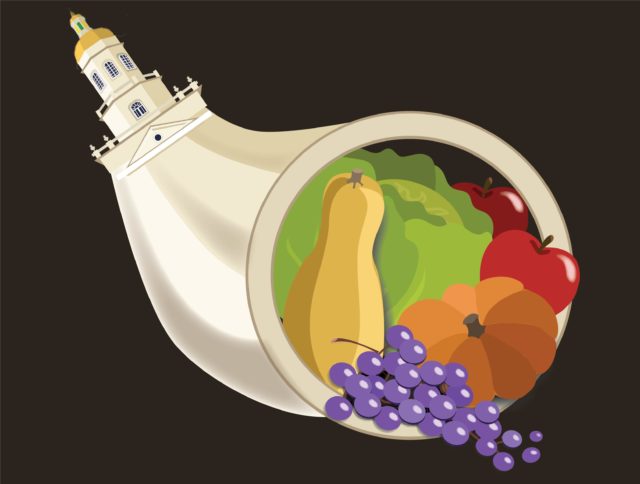Approximately half of the country’s college students are food insecure, according to a 2017 study published in the Educational Researcher. Food insecurity is the lack of access to affordable, nutrient-filled food. Baylor’s campus is no exception. In 2015, campus research showed that nearly 20 percent of the Baylor population is food insecure. That’s roughly 3,000 students who don’t know where their next meal will come from.
Baylor has been taking many steps to correct this issue, and it’s made plenty of strides in that area — the creation of The Store and The Fridge are both effective ways to provide students with quick meals that will satisfy the grumbling in their stomachs. Last week, the Baylor Board of Regents decided to fund The Store on campus for the next year. Once a semester, the Free Farmers Market on campus also provides students with fresh produce that can round out their diet. However, while these are wonderful options, there are many ways Baylor can do more to help food insecure students on campus.
Part of addressing the problem of food insecurity is understanding where the issue comes from. For some students, it’s a lack of money; for others it’s a lack of transportation to and from grocery stores. For others, it’s simply that the most affordable on-campus meal plan only feeds them three meals a week. Baylor has maintained that its goal is to get that 20 percent down to zero. We think there are several ways to do more and address each of these unique needs food insecure students may experience.
First, focusing on redirecting food waste to good use could be an effective way to help college students stay healthy and fed. According to Recycling Works, a government-funded research group in Massachusetts, the average college student throws away approximately 140 pounds of food waste each year. Baylor dining services says it is committed to waste reduction through reusing and recycling, but maybe they can continue these efforts in other ways. Further research into food waste management could lead to an adjustment in menus, the containers or serving materials used to transport the meals or even just adjust the amount of food served to reflect the amount of food wasted. If the food was served at intervals and in amounts that facilitate students piling an appropriate amount onto their plates, students who were food insecure could come to the dining halls later without fear that there will be a lack of edible food available for them.
Along with that, the university could consider a hot meal night, where once a week students could come and get a hot meal without needing a meal plan. Even just one hot meal a week could be all the difference for a student who has been living off of crackers for the past three days. Yes, that would be expensive for the university, but with a self-conducted waste audit, Baylor could figure out how to serve their food in a more sustainable way. Even by spending the same amount on food, the university could have more resources to support the hungry student population.
Another area the school could improve on is transportation to and from campus. There is a free shuttle that leaves from the Fifth Street circle on campus and goes to HEB every Wednesday night at 5:30 p.m. However, if students don’t know about this, or have a class or extracurricular commitments at that time, they would completely miss the opportunity to get the food they need. If Baylor changed the schedule to include more times and dates, students could access the shuttle or facilitated a student-oriented ride-share service to HEB, perhaps students without cars would be able to get to the store more often and more easily.
Finally, simply surveying the students to see what they need would enlighten the Baylor administration as to the best way to go about addressing food insecurity. Whether students say increasing the farmers market days or including rollover meal plans, or simply say they’re fine, surveying is a way the student body’s voices are heard on this issue. If Baylor wants to continue its efforts to stop food insecurity on campus, get the students involved too — they’re the ones who experience it every day.


